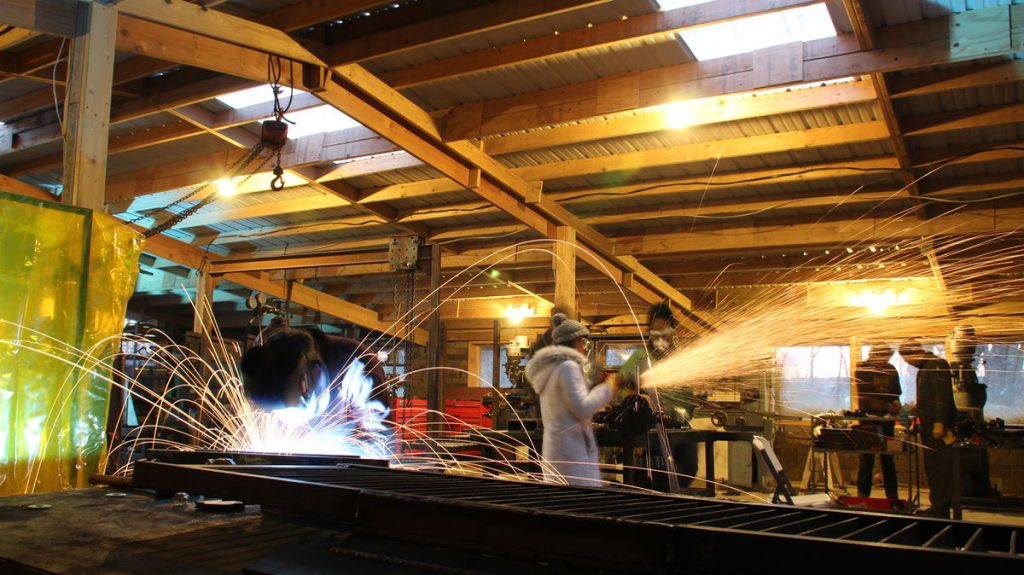
November 9-30, 2019
Maysville, MO USA
Build Yourself. Build Your World.
Do you want to create the circular economy – using open source industrial machines? We are pleased to offer our first ever Open Source Microfactory Startup Camp, where we work on enterprise development around the open source 3D Printer and CNC Torch Table. This is an on-site, residential immersion event at the Open Source Ecology headquarters in Missouri, USA.
We are doing a product release of the D3D Universal – a 3-in-1 CNC machine consisting of a 3D Printer, Plotter, and CNC Mill. We are also releasing the CNC Torch table – which can cut up to 6″ thick steel. We are developing related business models around the 2 machines. By providing open source assets – such as the machine blueprints, open source production engineering, and distributed quality control – our aim is to facilitate open source hardware enterprise startup – anywhere in the world.
We are publishing business models that involve kit production, production of finished machines, and immersion build workshops. This camp is intended for anyone considering starting an open hardware production business – building the 3-in-1 3D printers or CNC torch tables – though the skill set learned can apply to many related or derivative products – such as 3D printed parts production or metal parts kits for building tractors. In the startup camp, we will cover the production of the machine kits specifically and in detail. We will lay a lot of the foundations for producing the finished products – though we are not likely to get to certain finishing details such as packaging of finished products, as our focus this time is on the kit side. We will cover our experience on running build workshops, which we found to be a sustainable business model. Effective production of kits for such build workshops is an explicit goal of this Startup Camp.
In this Startup Camp, you will be engaged in Open Source Ecology’s public interest work – which involves publishing all designs and outcomes on the internet for free. Our goal is to facilitate replication and lower barriers to entry to the production of common goods.
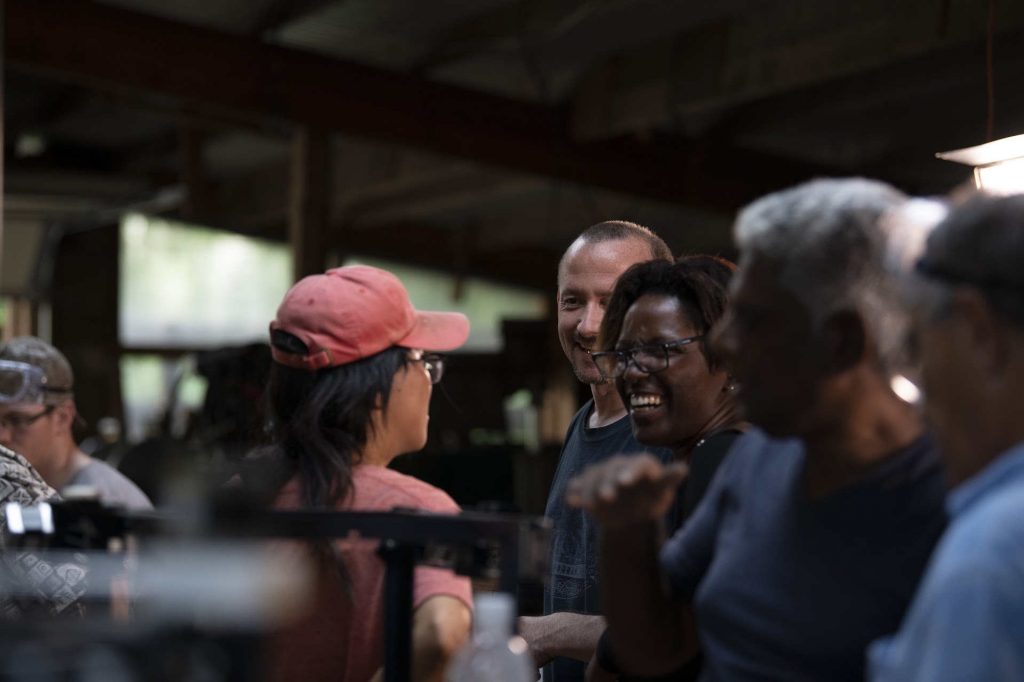
During the Startup Camp, participants and instructors will collaborate on releasing the critical assets for an open source hardware startup:
- Week 1 – product release of the 3-in-1 3D Printer
- Week 2 – product release of the CNC Torch Table
- Week 3 – Focus on enterprise development.
The minimum outcome of the Startup Camp is that we have developed and documented how to build and sell kits of the 3-in-1 3D printer and of the CNC torch table. We will have also documented how to build finished machines, but not in exhaustive detail. Third, we will cover the revenue model and execution of Extreme Build workshops – where participants build finished machines in one or few days to take home with them.
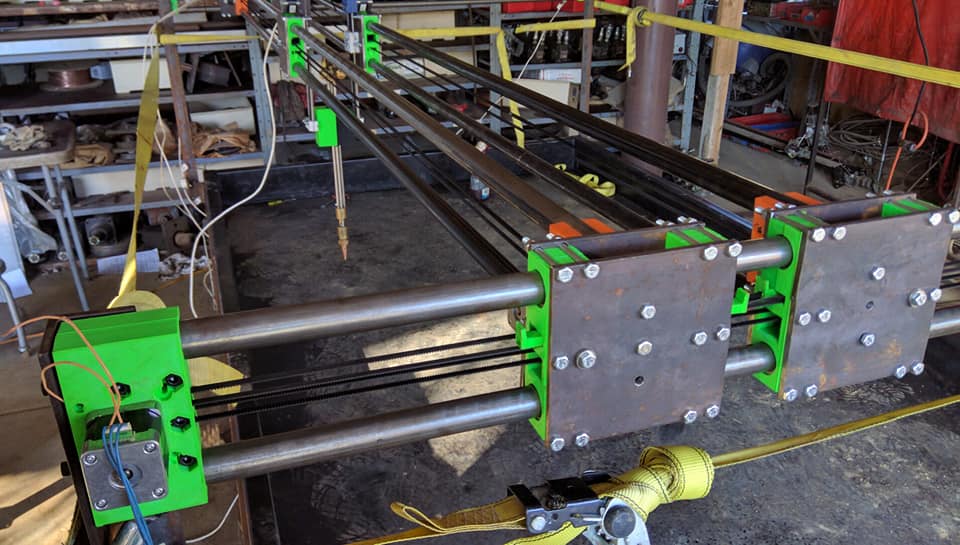
Currently we are developing the Open Source Microfactory STEAM Camp as a regular, ongoing immersion education program to be deployed concurrently in multiple cities around the world. Based on the success of our first STEAM Camp, we felt that we can make a dent in the universe by offering collaborative design training for public development of common products – such that we truly democratize production and bring innovation back to every community. Thus has emerged the concept of the Open Source Everything Store – a truly open source and collaborative effort that builds upon the effort of many people to produce real, useful products – that can be manufactured in local microfactories using 100% open source production machines. This is the open source Fab Lab or Open Source Microfactory – with the promise of doing for production what Wikipedia has done for knowledge.
People have alluded to this promise for over a decade since the publication of Fab by seminal thinkers in the field. But now, it’s time for the real deal. In the digital age, the obstacle is no longer technical – but cultural. What is missing is collaborative literacy – not hardware technology. We started the Open Source Microfactory STEAM Camp to fill the collaborative literacy gap: to produce a world of collaborative design for a transparent and inclusive economy of abundance.
This Startup Camp aims to release – among others – the D3D Universal CNC machine. The D3D Universal is a 3-in-1 3D Printer-Circuit Plotter-CNC Mill – which is the core tool to be used in the STEAM Camps. The STEAM Camps intend to build a global team of capable open-sourcerers – capable of wielding fully open source hardware and software tools for unleashed innovation. To develop products on a predictable schedule, we are also beginning to use the Incentive Challenge format. On Sep 1, 2020 – we will launch a $250k challenge to produce the world’s first, 3D printed, professional grade cordless drill – from waste plastic – using 100% open source microfactory technology. Our goal is to show the first, noticeable, replicable example of market disruption with open source hardware – on the way towards open collaboration becoming the norm in enterprise. Simply put – this is about creating a world beyond scarcity – where as we learned in kindergarden – we begin to share.

The Open Source Microfactory is like a Startup Weekend – but it is longer – and it focuses heavily on builds and their documentation. Further – all our results are open source – as in the concept of Distributive Enterprise. This is quite different than the proprietary industry standard of the Startup Weekend. We are creating an open source product development skunkworks in which everyone is focused on a product release. The tasks involved in the Startup Camp are varied, and involve learning across many areas of endeavor. If you thrive on learning and expanding your skill set, this is a great opportunity for immersion learning.
Throughout the Startup Camp, core tasks involve:
- Building – we will build several of the 3-in-1 3D printers (see more below), and one or more CNC torch tables during the 3 weeks. Each build is a rapid process that takes one day or less.
- Updating the CAD files and generating 3D Part Explosions in WebGL – We will spend time cleaning up existing CAD designs and putting them into a coherent package. We will also generate interactive exploded part animations suitable for embedding in websites. All CAD is done in FreeCAD, and we can teach FreeCAD novices the basic workflow for generating and manipulating 3D objects in about an hour.
- Publishing detailed instructionals – Build procedures are the core requirement for replicability, and we will spend most of the documentation time producing and refining these.
- Producing build videos – tightly-edited build instructionals can save people lots of time in terms of understanding a build, and we will allocate time to build videos, and time lapses.
- Documenting detailed production engineering – In OSE work, we produce tightly-refined build procedures designed for ease of build and parallel build – starting with the simplest designs possible. This is the key to allowing powerful technologies to be produced by just about anyone. Production engineering involves tools used, how they are used, admissible tools, supply chains, admissible parts, production ergonomics, lead times, workshop layout, workspace layout, workflow of the build process from receiving to shipping, material storage, inventory systems, and more. We will continue to refine and publish these aspects to guarantee seamless builds. We need to do this so that builds are easy, replicable, and fun.
- Data collection – speeds, production rates, extrusion rates, power usage, and many other calculable quantities will be measured for the machines in the time allowed. Data collection produces the critical documentation that – most essentially – defines the product. If we do not take data, we don’t even understand the product that we are offering, and we can’t compare it effective to other products to determine our value.
- Developing and documenting quality control procedures – The hallmark of a product is that it is replicable or uniform – so we need to nail down procedures of distributed quality control. It involves determining the key variables of production – across many independent microfactories worldwide – and defining test procedures for them. This involves performance data collection, and produces quantifiable performance specifications. Uniformity of test procedures in a distributed production scenario is key. Our initial milestone is 2 Sigma quality control level as received by the customer, as defined by ‘product in working condition based on its specifications.’

On the enterprise side, the tasks that we will engage build upon our existing knowledge of running workshops and producing kits for internal use. We will explore how to take the products from the workshop to worldwide distribution, and will focus development based on essential needs of the enterprise. We can only do so much in one week – and we will prioritize developing the most important assets from the following:
- Business models – Developing budgets and financial analysis behind possible enterprises. These include the kit, finished product, and workshop models – both for owner-operated businesses and franchises based on lifetime design products. We will cover some basics of business form in a global context. The motivation here is to start with realistic numbers and predictions, and to test and tweak these in practice.
- Marketing and Sales – This means developing marketing materials such as media assets, edu-marketing materials such as e-books, explainer videos, website copy, and website templates for product sales. Marketing also includes documenting marketing channels and strategies for collaborative marketing with allied parties. This may include developing templates and media assets for email, video, Facebook, press releases, and other channels. Given that we are creating a new class of industry – the open source product class – it would be useful to facilitate the access to effective marketing without everyone having to reinvent the wheel. OSE could function as a steward for promulgating best practice and making life easier for people.
- Sales and Website Templates – developing sales pages for the products which include 3D exploded views, specification, product reviews, and Buy buttons. Developing a template for the Open Source Everything Store using open standards, such that anyone can join the network of open source product development. Our goal here is to make the technicalities and execution of a sales site or web page easier. By creating a uniform standard for product pages, we can facilitate the creation of the Open Source Everything Store.
- Product Distribution – exploring and documenting various options for distribution – from independent sales, store front, Amazon Store, Kit.com, Etsy, Kickstarter, Crowd Supply, and others. Distribution development also includes documenting key distribution channels available globally, and how the OSE global network of collaborators can use these to grow the pie for everybody. We want to develop distribution channels so that the community of producers can grow with established distribution channels.
- Support and Service – Producing an Operation, Maintenance, Troubleshooting, and Repair manual, setting up Forums, FAQs. Producing detailed, cloud-editable Expoded Part Diagrams with sourcing links. We would like to figure out how to create a robust support community – so that the support overhead required for any enterprise is minimal.
- Producer Certification – For distributed production to be uniform, standards and protocols must be defined for verifying replicable production results in different microfactory settings. We will spend some time defining quality control standards and certification protocol for OSE Certified distributed production. We would like to do this because we aim to certify producers who want to work with the OSE brand – to add as much value to our work and to the work of other producers.
- Lifetime Design Warranty – we will contribute to the creation of OSE Lifetime Warranty – what OSE and allied producers can commit to and sustain over a lifetime. Lifetime design is a unique value proposition for OSE. Based on OSE’s adherence to open source design, design transparency, digital and bootstrapping fabrication, modularity, scalability, product ecologies, using easy-to-source off-the-shelf (COTS) parts, robust design, ease of build, easy disassembly for repair, proposed recycling infrastructure for plastic and metal, and use of common natural resources – we are in a good position to offer full lifecycle stewardship of our products. OSE’s designs allow for the user to decide the end of the useful life of a product – and not be subject to planned obsolescence. This is a significant and unique value proposition – for which reason we will spend time discussing and documenting its implementation. The lifetime design warranty can add more value to our offer – so executing it properly is important.
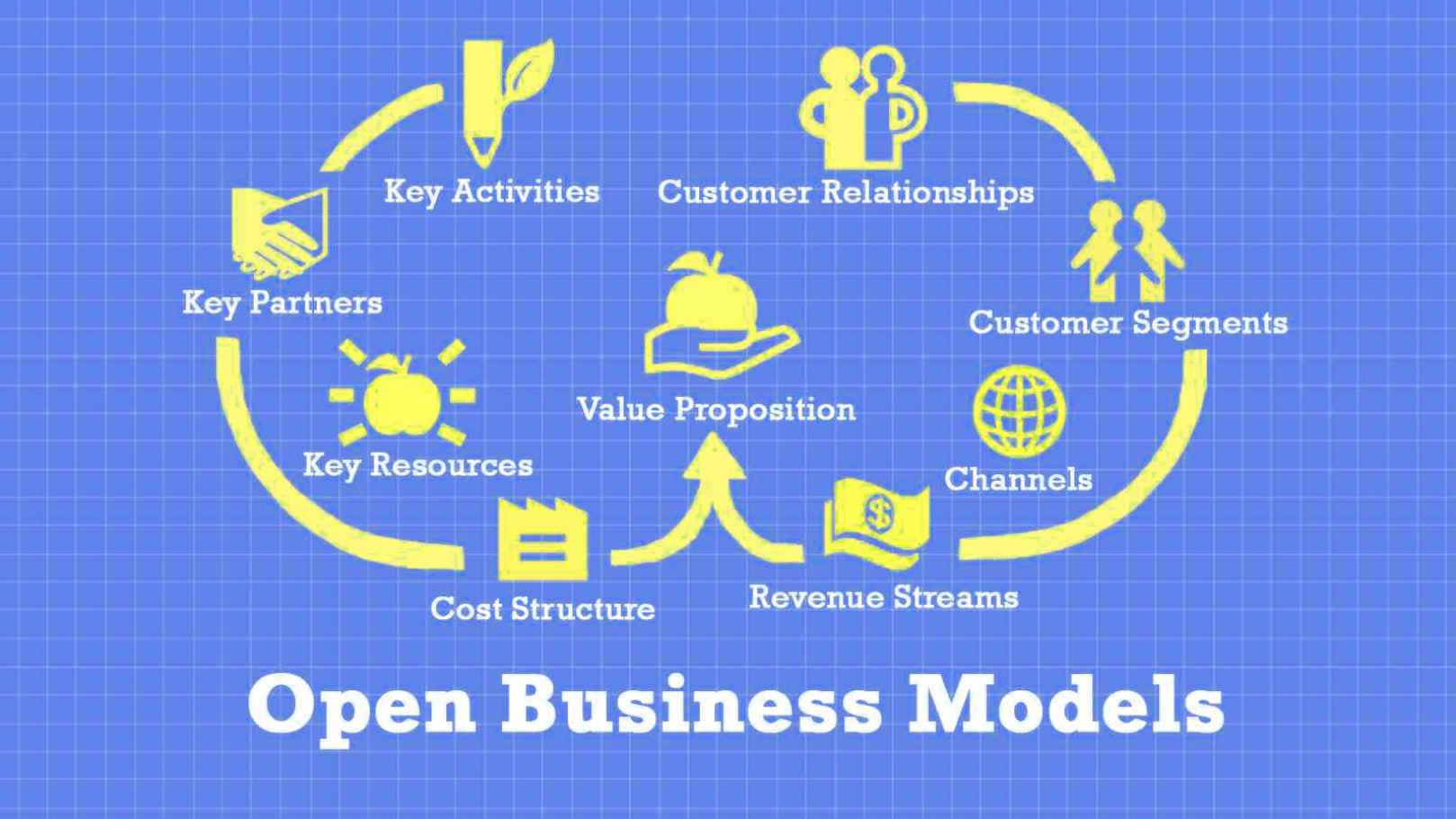
3D Printer. We are building 3D printers using our modular Universal Axis system, and we have run a number of build workshops where we build these printers. Given the flexibility of the Universal Axis, we have the capacity to build an entire ecosystem of 3D printers – simple and complex, large and small. We have prototyped a 6’ tall 3D printer and a larger printer with a 1 meter print bed in the past.

During the Startup Camp – we will be turning the D3D Universal into a product that can be sold as an educational or bootstrapping kit. The D3D Universal is a 3-in-1 CNC machine with quick-connect tool-heads that turn the machine into a 3D printer, circuit plotter, and small mill. As a bootstrapping kit – the D3D Universal is sufficient to produce useful parts – such as parts for a larger 3D printer or for the large CNC Torch Table. Our goal is producing not only individual machines – but machines that function as construction sets – which allows one to build different or larger machines by virtue of scalability and modularity.

There is another unique point of the D3D Universal: we are building an open source, 3D Printed motor for the circuit mill, such that the D3D Universal is truly an educational experience that provides for a full range of exploration in CNC machine design and build. Parts such as the Universal Axis 3D printed pieces, spindle, the extruder heads, and even parts of the controller can be produced using the D3D Universal.
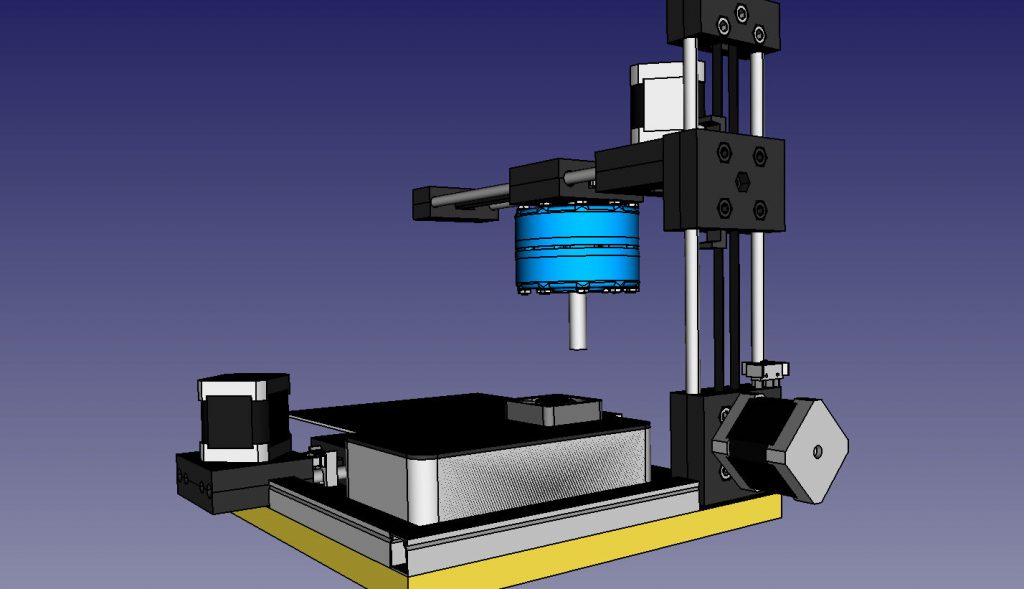
If the Startup Camp registration fills – we will add D3D Pro to our releases. D3D Pro is the industrial-grade version of the 3D printer with a fast heating print bed. We are adding a high temperature printing chamber for reliable printing without warping – thereby extending practical printing from PLA, TPU, and PETg – to a whole range of higher temperature thermoplastics and elastomers.

CNC Torch Table. In 2011, we built our first ever CNC torch table, which was published in Make Magazine. We used LinuxCNC for the controls.

Since then, we’ve built a second prototype in 2013 using an off-the-shelf parts kit, but did not run it because we were stuck on a suitable open source controller. In 2016, we have developed the scalable and modular Universal Axis CNC motion system, which we are using today. This motion system provides 10 micron resolution precision drive for small and large CNC machines. In 2017, we built a 5’x10’ CNC Torch Table prototype using this system.
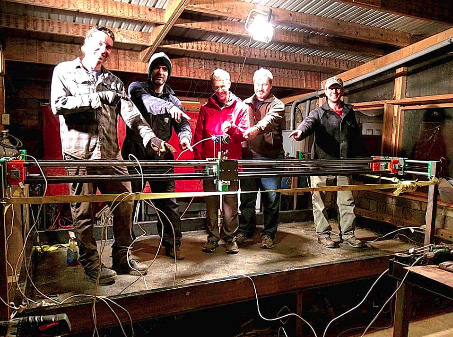
In 2019, we have added the Universal Controller to our modular toolkit. Originally designed for the 3D printer, we found that with slight modifications – the Universal Controller is capable of automated control for not only CNC machines – but also many other electronic and automated devices – such as welders and 3D printing filament makers. Because of the good fit with the modular Global Village Construction Set architecture – we decided to use the Universal Controller as a plug-and-play controller module for the CNC torch table. This means that we have a modular component that is usable throughout the GVCS, making for a robust system with interchangeable parts.
The current product release of the CNC torch table thus includes the Universal Axis, Universal Controller – and full modularity and scalability. We are building the CNC torch table as 5’x5’ interconnectable modules. Because these are fully scalable – we decided to use the 5’x5’ section as a basic building block such that a 5’x10’ machine can be built readily via modular addition, as opposed to a different build from scratch. This ‘’Grow Torch’’ modular system applies to building CNC torch tables of any size.
During the Startup Camp, we will build at least the 5’x5’ CNC torch table, and a larger one if the workshop registration fills up. Modular design means that multiple teams can work in parallel on multiple sections – such that the scale of the build is not limited by time (a linear process) – but by the number of available people (parallel process).
Stretch Goals. If more than 12 people sign up and the skills that people bring to the table are exceptionally qualified – we will have the capacity to add the larger 3D printer with the fast heated bed and a high temperature build chamber.
The daily grind of the Startup Camp – it’s to be determined. It’s our first Startup Camp ever. We expect that we spend full days in the workshop and on computers and in discussions – building, documenting, designing – discussing and negotiating the best path forward. There may be presentations by individuals in authority to teach others best practice and technique. We like action, not endless discussion – and merit should be discovered, recognized, and respected. The 3D Printers and CNC Torch Tables are non-negotiable – but how we deploy them is up to us. We are inviting you to co-create the next economy.
Regarding the living conditions in the HabLab– think of a college shared-room dorm. We have 4 double rooms, and two quadruple rooms available in the HabLab. Think of a college dorm, reduce your expectations by 90%, and you’ll be ok. We’re not yet the Hilton, though we aim to invest significantly in infrastructure next year. If you would like more privacy and comforts – then you can get a hotel in Cameron (15 minutes away), but you would need a car to get back and forth.
In November, it will start getting cold – so dress accordingly. See the annual average temperature in Kansas City. We have firewood and a comfy heating stove , but the participants need to keep the stove lit to keep warm. Not a big deal, but somebody has to do it.
Regarding working conditions – you will be around inspiring people, we do have 1 Gig fiber, and our workshop is fully stacked with equipment. The workshop should be a pleasant experience as long as we bundle layers of clothing to keep warm. The workshop is uninsulated, and we can light the stove in there if we want to be warmer. We are probably going to be too fired up to pay attention to the workshop stove, though.
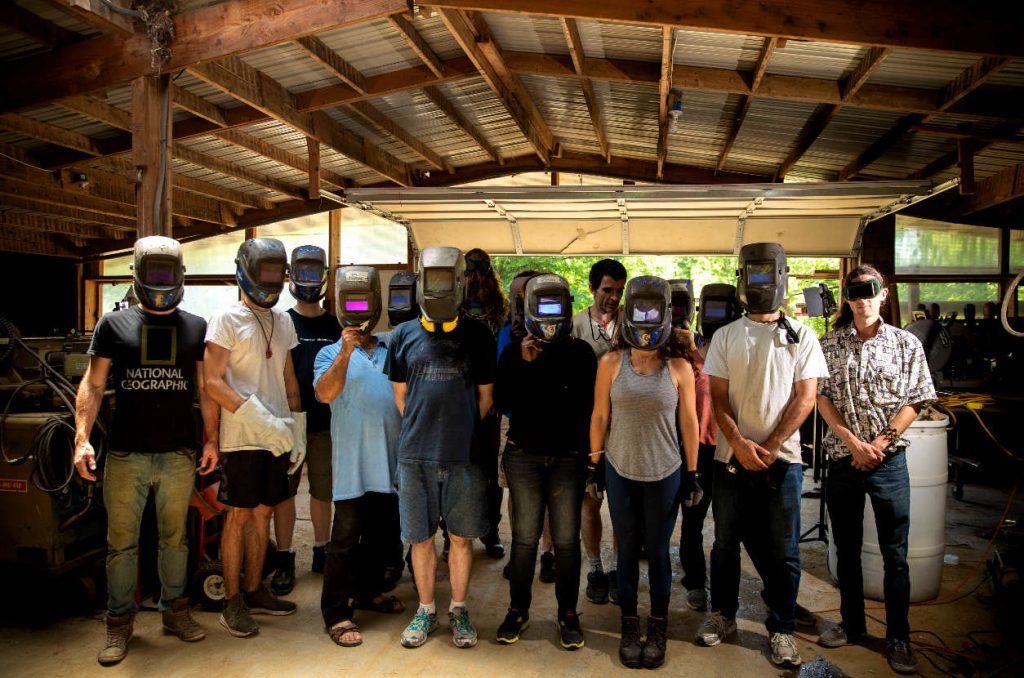
Food and lodging is provided for the Camp – supplies and coffee for breakfast and lunch, and we’ll have dinners catered from a limited supply of local restaurants. There is a Thanksgiving holiday during the Startup Camp – which we will celebrate.
The Startup Camp is, above all, of a collaborative nature, and all results generally go into the public domain (specifically, under a CC-BY-SA 4.0 International license).
We put our egos away as we learn from each other and collaborate on something greater than ourselves. That means we work openly, publish results and CAD on our Work Logs as soon as we have produced anything – and all collaborate on improvements. If you are a super-cooperator, you will thrive in this process. You don’t have to talk a lot – but you do need to collaborate.
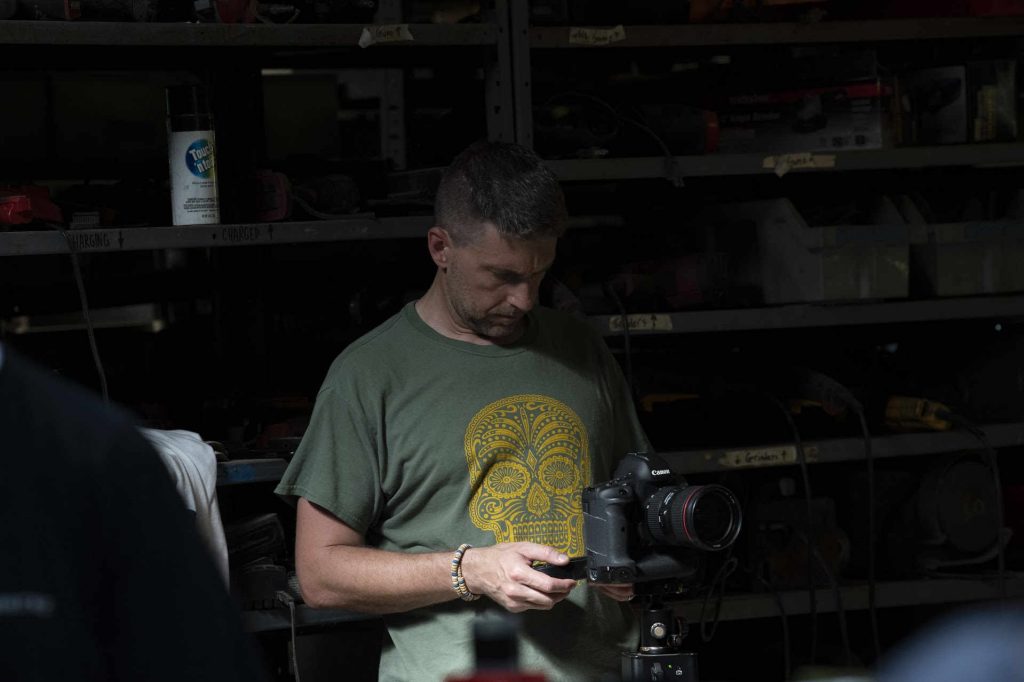
The process has economic ramifications of lowering barriers to making a living – by producing open source hardware. The skeptic might claim, how will you make money if you give everything away – your designs, your business plans. The answer is simple: the pie can grow for everybody, and it’s only our scarcity mindset that stands in the way. We have to step back to first principles to understand this: the sun shines 10000 times more power at the earth than we use today. This means that energy is abundant, and therefore material resources for thriving are abundant because useful materials are obtained via energy inputs.
So what is in it for you if you attend the Startup Camp? You will gain much insight into producing 3D Printers an CNC Torch Tables – two very fundamental machines that can build civilization. The market for these is billions – and we are collaborating and sharing knowledge – especially economically significant knowledge – to improve the lot of everybody. If transcending artificial scarcity is also your deal – then you will thrive in our environment – and we welcome you to sign up for this Camp.
Note also that if you are not ok sharing all the results openly, this workshop is definitely not for you. We work fully open source for the benefit of all humankind – and the goal of this workshop is to demonstrate that we can indeed eliminate the artificial scarcity plague that harassing the human spirit. Our route to this is showing that a historic transfer of wealth from the few to the many is a practical and peaceful option – and that it can be implemented via open source production. We understand that we can’t eliminate greed a 100% – but nothing is perfect and we can only hope to level the playing field for everybody – as much as we can. The goal of this effort is to shift the economic paradigm from proprietary to collaborative.
Daily Schedule
- 8 AM – Breakfast
- 9 AM – Morning class time/design/planning.
- 10 AM – Morning build session.
- 1 PM – Lunch.
- 2 PM – Afternoon build coordination and build session
- 3 PM – Afternoon build session.
- 6 PM – Dinner and social time.
[/segment]
Have questions? Drop us an email: info at opensourceecology dot org
Our facilitators include Marcin Jakubowski and Michel Dhoore, and we are also inviting select other participants who have been involved in OSE to facilitate various aspects of the Startup Camp.

- Marcin Jakubowski (USA)- Marcin was trained as a fusion physicist. He left academia right after finishing his Ph.D. to start a farm – in Missouri – and founded Open Source Ecology. For the last 10 years, he has been working on the Global Village Construction Set – now 1/3 complete – a set of enabling tools and machines for building regenerative infrastructures. Marcin is passionate about creating the Open Source Economy – a new operating system for Earth. See Marcin’s bio and Global Village Construction Set Ted Talk:
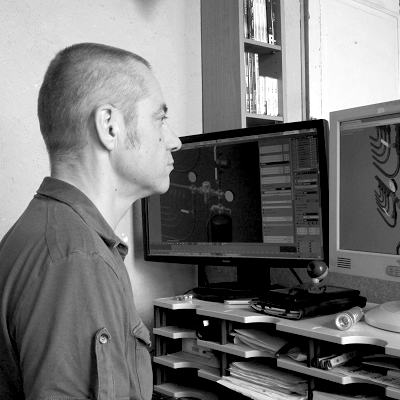
- Michel Dhoore – (Belgium) Open source society proponent. Jack of all trades, master of some. Over the years working in several sectors from printing, stage building, as theater technician and as a entrepreneur / contractor mainly in ecological insulation – gives Michel a broad technical insight. Michel is not so keen on schooling but very keen about learning and education and he doesn’t confuse the two. The internet has given him and humanity as a whole a tool to learn and share at an unprecedented rate. The last few years he has been focusing on 3D web visualization as a learning tool by using solely Open Source software tool-chains. On his website 3dcontent.be you can find some of the results. His final goal is building all kinds of stuff, not only virtual, in a totally Open Source workshop. He has co-designed the Universal Axis, and is currently developing the open source, 3D printed, axial flux electric motor.

- Chris Caswell – (USA) Christopher Caswell (USA) – With a background in Computer Science, Chris became particularly interested in Open Source Hardware as he began to experiment with 3D Printing in 2011. He was inspired and driven by the vast potential of personal/distributed manufacturing as he witnessed the line between software and hardware begin to blur. In 2013 he quit his job in Boston and moved to Richmond Virginia to work with the technology full time. This work eventually became a Full Service 3D Print Shop – 3D Central – specializing in desktop FDM printers. He primarily does custom fabrication and rapid prototyping, along with continuing to offer 3DP related services to the surrounding community. Over this time he has replicated over 10,000 things, and trained hundreds of folks on the basics of the technology.
![]()
Accommodations and Food
See section above on Working and Living Expectations
Transportation
Participants traveling by plane will be picked up from the Kansas City International Airport at 7 PM the evening before the the Startup Camp – on Friday, October 8. Please plan on arriving some time before 7 PM, so we can make one pickup from the airport. If you are driving, you are welcome to arrive on Friday or before the 9 AM start.
What to Pack
Bring steel-toed boots and protective clothing, as there will be welding and other activity going on in the workshop. See above regarding accommodations and food. Bring a tripod and a camera to assist with video documentation, as additional video footage is welcome for timelapses and other build documentation.
Workshop fee includes workshop tuition, food, and lodging for the the Startup Camp. If participants would like to acquire kits of the machines that we are building, we can provide parts kits at the cost of materials and shipping, which we can ship after the Startup Camp.
The registration options are:
- Full 3 Week Registration – $2995 – Participate in the 3-in-1 CNC + 3D Printer Week, CNC Torch Table Week, and Enterprise Startup Week.
- 1 Week Registration – $1195 – You can select the first, second, or third weeks of the event – or any combination. Just let us know when you register which week or weeks you would like to attend.
- Remote Participation – $299 We are offering 16 live, one hour sessions at 11AM CST USA time for the first 16 days of the Startup Camp, where we cover key topics and answer questions. Sesssions will be recorded so you can review them at a later date. Topics covered include How to Start an Amazon Store, Business Models for Open Hardware, Finanical Analysis of Kit Production, Product Strategy for Producing Kits, and more. See the topics list on the wiki. We are interested in engaging individuals worldwide who are considering creating products for the Open Source Everything Store. Remote participation in the Startup Camp is intended to kickstart wider participation, where you can engage with all the individuals involved as we work on changing the economic paradigm towards collaboration. To select this option, please use the Donate to Open Source Ecology option below with the correct amount.
Sponsor another participant or Donate to OSE: We are a nonprofit organization with 501(c)3 status, and you can make tax-deductible contributions to us. You can fund attendance of someone who is on the waiting list for financial assistance. We receive low-income assistance requests for all of our workshops. Sponsor by paying the quantity on the order form below. Please email us at info@opensourceecology.org that you are sponsoring someone else. We can send you a tax deduction receipt. You can also donate via BitCoin:

Bitcoin Address: ”’166yC48RakrZdtsBj36vY9q29CpzknHbxY”’
Payment Options: PayPal, Check, eCheck Bitcoin, Money Order, or Wire Transfer
To register, we use Eventzilla – which accepts PayPal or eCheck options. Using the eCheck option (bank routing + account number) avoids the 3% PayPal fee. To avoid fees, you can send a check to Open Source Ecology, 909 SW Willow Rd, Maysville, MO 64469. We can also accept Bitcoin and and wire transfers. Email us at info at opensourceecology.org for additional instructions.
Register Here:
Have questions? Drop us an email: info at opensourceecology dot org

Comments are closed, but trackbacks and pingbacks are open.